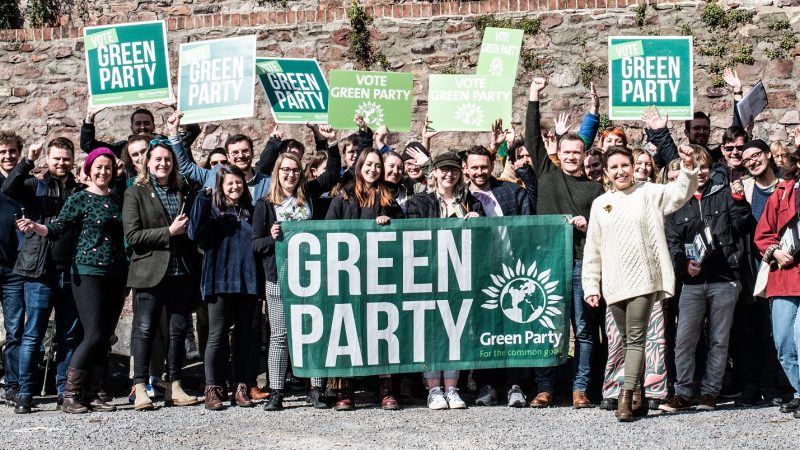Zoe Nicholson explains the Green Party's climate policies

Many of us know backed by the scientists that the UK’s current climate targets do not reflect the urgency of the climate crisis. For decades the Green Party has been pushing Government to transition to a zero-carbon society as soon as possible and our 2024 Manifesto, Real Hope Real changes calls for real action to achieve net zero more than a decade ahead of 2050.
We set out an ambitious and costed plans to deliver a zero carbon electricity supply and security of supply over short and long periods of low generation, with sufficient electricity for all cars and vans to be electric, for all homes and buildings to stop using fossil fuels, and for most industry to transition to clean energy. Achieving net zero emissions is a massive challenge, requiring significant financial investment and it also presents an opportunity for communities to achieve economic sustainability, something we’ve been denied for generations. The Green Party is committed to a transition that prioritises community wealth over corporate profits. Our manifesto includes ensuring that those greens elected will push any government for:
- Wind to provide around 70% of the UK’s electricity by 2030.
- Delivery of 80GW of offshore wind, 53 GW of onshore wind, and 100 GW of solar by 2035.
- Investment in energy storage capacity and more efficient electricity distribution.
- Cancel recent fossil fuel licences such as for Rosebank and stop all new fossil fuel extraction projects in the UK.
- Remove all oil and gas subsidies.
- Introduce a carbon tax on all fossil fuel imports and domestic extraction, based on greenhouse gas emissions produced when fuel is burned.
- We want to see the phase-out of nuclear energy, which is unsafe and much more expensive than renewables. The development of nuclear power stations is too slow given the pace of action we need on climate. They also create unmanageable quantities of radioactive waste and are inextricably linked with the production of nuclear weapons.
We don’t support fossil fuel companies in maintaining shareholder value through risky public investments in carbon capture and hydrogen projects. Instead, we aim to collaborate with businesses. The IPPR’s “Manufacturing Matters” report highlights regional strengths in sectors like wind turbine and heat pump manufacturing. By leveraging our human and business resources, we’ll ensure jobs stay in regions with a ready workforce and adaptable businesses. The rollout of millions of heat pumps and gigawatts of wind power will create jobs and provide economic security across the UK.
We oppose leveraged deals that burden communities with high costs for wind farms or local heat networks. We cannot repeat the naivety of the Private Finance Initiative (PFI). We completely reject fiscal rules that empower corporate investors over public good.
We won’t simply streamline planning permissions to hand over new energy assets to private entities. Instead, we advocate for community energy to be at the heart of a localized, decentralized energy sector. Our approach includes a presumption in favour of community stakes in all sustainable energy projects. We will make the financial case for why community involvement is beneficial.
Our regional investment banks will attract private ESG investments to support community projects. The Green Party has always believed in the cooperative and mutual sector’s power to reinvest value into communities. We will remove regulatory barriers hindering this sector and ensure capital investment via regional banks leads to democratically controlled public ownership. These banks will offer secure ESG assets, making them safe for pension funds. This is crucial, as seen with the University Lecturer’s pension scheme facing losses due to Thames Water’s instability. We will prioritize investors who serve the national interest.
Our goal is to ensure our communities are sustainable environmentally, socially, and economically. By focusing on community wealth and involvement, we can build a greener, fairer future for everyone.
Zoe Nicholson is the leader of Lewes District Council and the Green New Deal Spokesperson for the Green Party of England and Wales
Image credit: Matthew Philip Long – Creative Commons
Left Foot Forward doesn't have the backing of big business or billionaires. We rely on the kind and generous support of ordinary people like you.
You can support hard-hitting journalism that holds the right to account, provides a forum for debate among progressives, and covers the stories the rest of the media ignore. Donate today.



